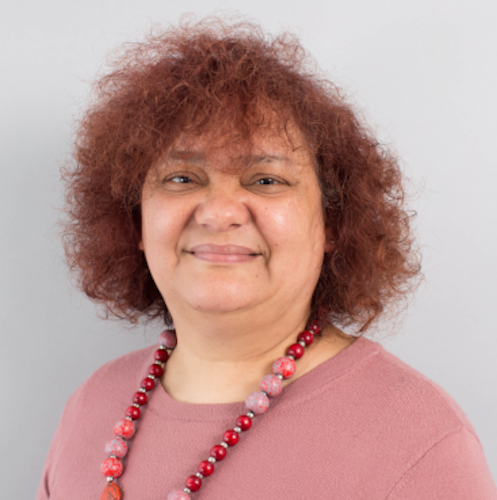
Jill Claassen
University of Cape Town
Jill Claassen ![]() has worked in academic libraries for over 20 years and is currently a section manager of scholarly communication and research at the University of Cape Town (UCT), in South Africa since 2014. One of sections she oversees is scholarly communication and publishing, which is responsible for implementing UCT’s Open Access Policy by making UCT’s scholarship discoverable through the institutional repository, OpenUCT, as well as implementing the library publishing service which includes publishing open access journals and open access monographs & textbooks. The philosophy of this publishing service is to share African scholarship by making it accessible to everyone on the continent and the world. Jill currently serves on the SPARC Africa management committee and is a member of the IFLA Library Publishing Special Interest Group.
has worked in academic libraries for over 20 years and is currently a section manager of scholarly communication and research at the University of Cape Town (UCT), in South Africa since 2014. One of sections she oversees is scholarly communication and publishing, which is responsible for implementing UCT’s Open Access Policy by making UCT’s scholarship discoverable through the institutional repository, OpenUCT, as well as implementing the library publishing service which includes publishing open access journals and open access monographs & textbooks. The philosophy of this publishing service is to share African scholarship by making it accessible to everyone on the continent and the world. Jill currently serves on the SPARC Africa management committee and is a member of the IFLA Library Publishing Special Interest Group.
All Sessions by Jill Claassen
A distinctive scholarly publishing model: working together to accelerate diamond open access - an African focus
Open access guarantees access to scholarly content that has minimal barriers to sharing and expanding upon knowledge. Diamond open access, through an African lens, is more than the removal of financial barriers to access and sharing scholarly output. It is finding equitable solutions, within its socio-economic context, which should be “underpinned by social justice principles as it has the capacity to usher in equity and equal opportunity” (Raju and Badrudeen, 2022: 54). The purpose of the presentation is to discuss the need for communities of practice to collaborate and share skills for an inclusive scholarly ecosystem, with a social justice approach of ultimately channelling opportunities to advance African research. Social justice in scholarly publishing allows for the dismantling of systemic bias within the established scholarly ecosystem and rebuilding this ecosystem by including those who were previously marginalised. Communities of practice for this ecosystem, with the driver of social justice, should be with academic libraries, African researchers and with information technology skills. Academic libraries have the opportunity to support the dissemination of scholarship through library publishing by providing skills development to other libraries, as well as guidance to authors and editors of scholarly journals and books. The communities of practice for the African academy should aspire to disrupt and rebuild the publishing landscape so that it’s reflective of their society, by encouraging the publishing of local content that is multilingual and foster partnerships with co-authors on the continent, including providing opportunities and mentorship for the next generation of researchers. The dearth of IT infrastructure and skills in Africa will be addressed through collaboration. Together the scholarly communication landscape can be more diverse and inclusive, with the equitable solution of increased scholarship emanating from Africa, and not merely a landscape that is representative of global north research. The University of Cape Town (UCT) libraries have developed a continental publishing platform, using diamond open access, to grow and expand African scholarship. The social justice drive to make African scholarship freely accessible and shared has resulted in some fledgling communities of practice. The librarians provide training and support through train-the-trainer model for library publishing and the African researchers are encouraged to publish local scholarship for their own societies, including in multiple languages. The continental platform provides one publishing infrastructure which all African institutions can freely publishing in showcasing their own institution’s scholarship. Collaboration in diamond open access can enable the acceleration of scholarship. However, by underpinning this collaboration on social justice principles, diamond open access enables participation to a global kaleidoscope of knowledge by including all research voices, specifically Africa’s marginalised voices. The African proverb of going further together, especially through social justice communities of practice, is important for a diverse, yet inclusive scholarly ecosystem, as together the research landscape will showcase the variety of scholarship that is needed to impact and build up all societies.